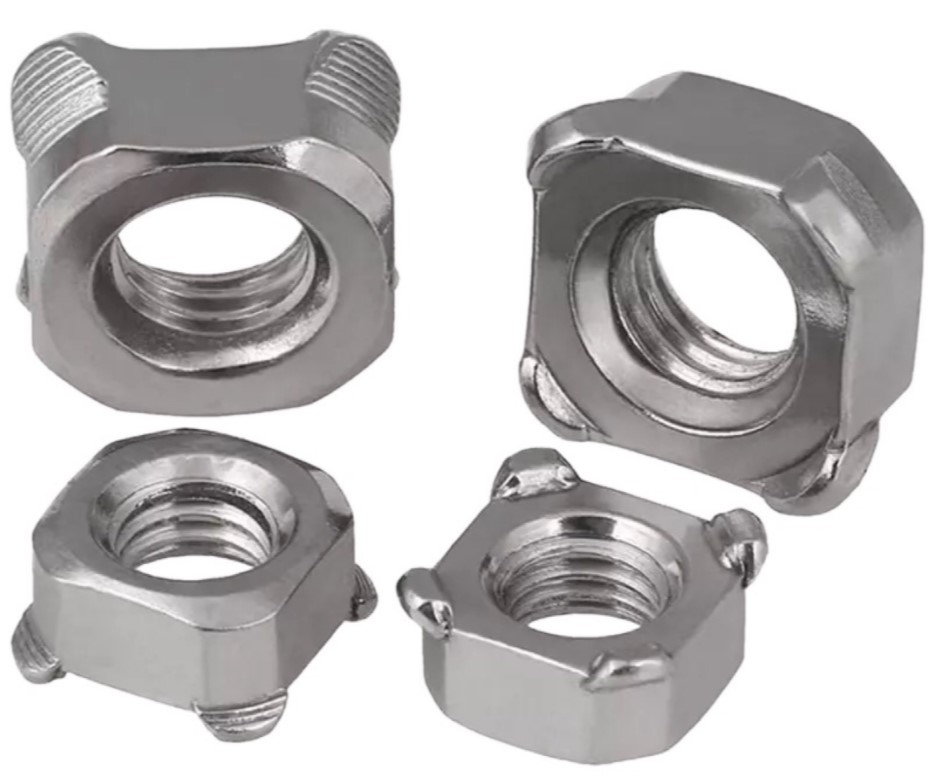Hotline: 4008816860
Hotline: 4008816860
In the vast landscape of industrial fasteners, the four-corner welded nut stands as a versatile and reliable component, offering robust attachment solutions across various applications. This unique type of nut is characterized by its design that incorporates welding tabs or flanges at each of its four corners, allowing it to be securely fixed to metal surfaces through the welding process. Below, we delve into the intricacies of four-corner welded nuts, highlighting their features, benefits, and applications.

Design and Construction
Four-corner welded nuts are typically constructed from high-quality steel or stainless steel, chosen for their durability, corrosion resistance, and ability to withstand significant loads. The nut body itself is threaded internally, compatible with standard bolts or screws, while the four integral welding tabs extend outward from its corners. These tabs serve as the anchor points during the welding procedure, ensuring a strong and lasting bond between the nut and the substrate material.
Key Features
Secure Attachment: The primary advantage of four-corner welded nuts lies in their secure and permanent attachment method. By welding directly to the surface, they eliminate the risk of vibration-induced loosening, a common issue with other types of fasteners.
Versatility: Suitable for both thin and thick metal sheets, these nuts can be adapted to fit a wide range of materials and thicknesses, making them a versatile choice for diverse applications.
Space-Saving: With their compact design, four-corner welded nuts allow for efficient use of space, particularly in applications where accessibility is limited or where every millimeter counts.
Cost-Effectiveness: While the initial cost of welding may be considered, the long-term savings from reduced maintenance and replacement due to failure make these nuts a cost-effective solution.